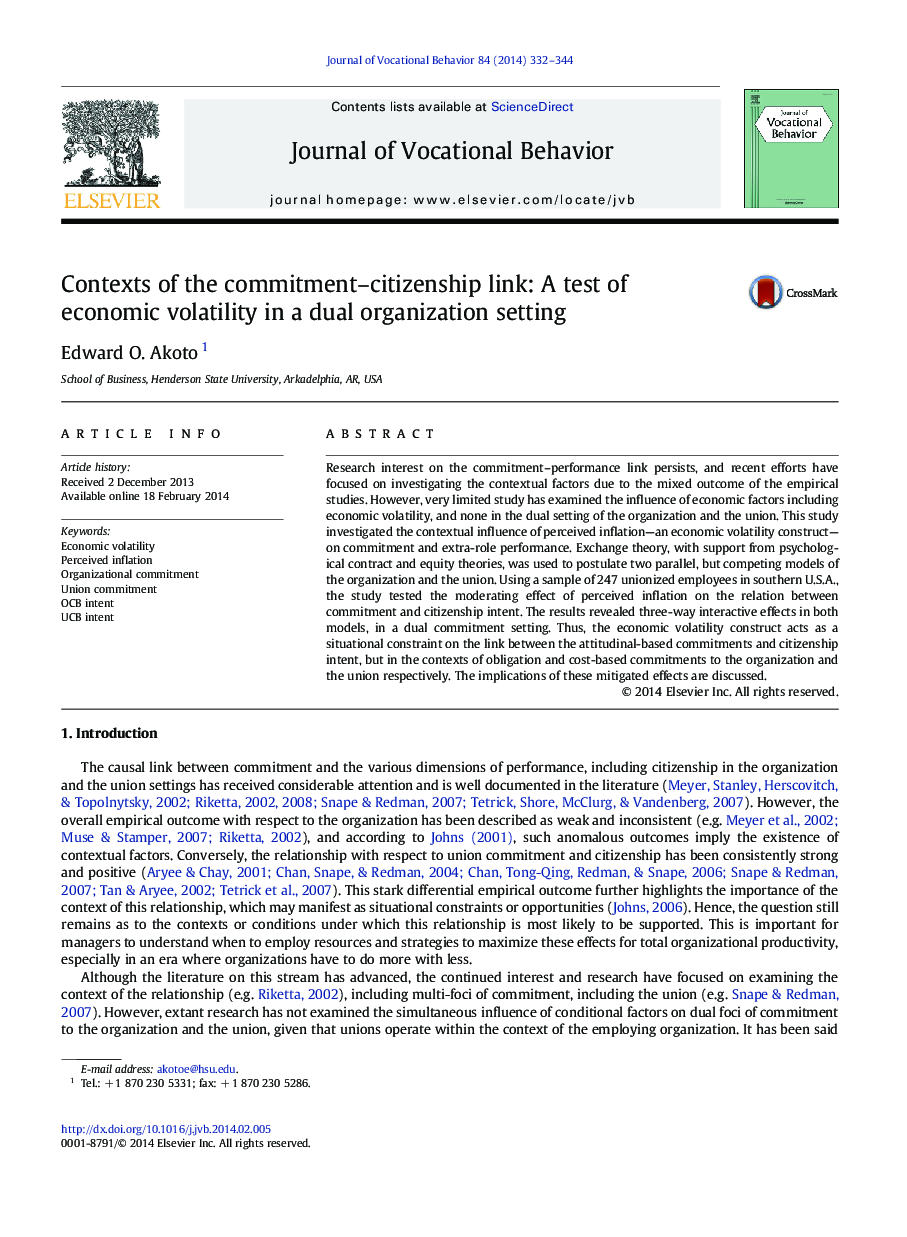| Article ID | Journal | Published Year | Pages | File Type |
|---|---|---|---|---|
| 886943 | Journal of Vocational Behavior | 2014 | 13 Pages |
•Study tests context effect of perceived inflation on commitment–citizenship link.•Two parallel but competing models of organization and union were postulated.•Three-way interactive effects in both models were revealed.•Perceived inflation mitigates both relationships, aided by other commitment bases.
Research interest on the commitment–performance link persists, and recent efforts have focused on investigating the contextual factors due to the mixed outcome of the empirical studies. However, very limited study has examined the influence of economic factors including economic volatility, and none in the dual setting of the organization and the union. This study investigated the contextual influence of perceived inflation—an economic volatility construct—on commitment and extra-role performance. Exchange theory, with support from psychological contract and equity theories, was used to postulate two parallel, but competing models of the organization and the union. Using a sample of 247 unionized employees in southern U.S.A., the study tested the moderating effect of perceived inflation on the relation between commitment and citizenship intent. The results revealed three-way interactive effects in both models, in a dual commitment setting. Thus, the economic volatility construct acts as a situational constraint on the link between the attitudinal-based commitments and citizenship intent, but in the contexts of obligation and cost-based commitments to the organization and the union respectively. The implications of these mitigated effects are discussed.
